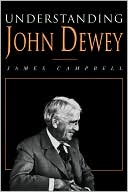Category Books
- Fiction Books & Literature
- Graphic Novels
- Horror
- Mystery & Crime
- Poetry
- Romance Books
- Science Fiction & Fantasy
- Thrillers
- Westerns
- Ages 0-2
- Ages 3-5
- Ages 6-8
- Ages 9-12
- Teens
- Children's Books
- African Americans
- Antiques & Collectibles
- Art, Architecture & Photography
- Bibles & Bible Studies
- Biography
- Business Books
- Christianity
- Computer Books & Technology Books
- Cookbooks, Food & Wine
- Crafts & Hobbies Books
- Education & Teaching
- Engineering
- Entertainment
- Foreign Languages
- Game Books
- Gay & Lesbian
- Health Books, Diet & Fitness Books
- History
- Home & Garden
- Humor Books
- Judaism & Judaica
- Law
- Medical Books
- New Age & Spirituality
- Nonfiction
- Parenting & Family
- Pets
- Philosophy
- Political Books & Current Events Books
- Psychology & Psychotherapy
- Reference
- Religion Books
- Science & Nature
- Self Improvement
- Sex & Relationships
- Social Sciences
- Sports & Adventure
- Study Guides & Test Prep
- Travel
- True Crime
- Weddings
- Women's Studies
Understanding John Dewey: Nature and Cooperative Intelligence »

Authors: James Campbell
ISBN-13: 9780812692853, ISBN-10: 0812692853
Format: Paperback
Publisher: Open Court Publishing Company
Date Published: January 1995
Edition: (Non-applicable)
Author Biography: James Campbell
Book Synopsis
Dewey is the most influential of American social thinkers, and his stock is now rising once more among professional philosophers. Yet there has heretofore been no adequate, readable survey of the full range of Dewey's thought. After an introduction situating Dewey in the context of American social and intellectual history, Professor Campbell devotes Part I to Dewey's general philosophical perspective as it considers humans and their natural home. Three aspects of human nature are most prominent in Dewey's thinking: humans as evolutionary emergents, as essentially social beings, and as problem solvers. Part II examines Dewey's social vision, taking his ethical views as the starting point. Underlying all of Dewey's efforts at social reconstruction are certain assumptions about cooperative enquiry as a social method, assumptions which Campbell explains and clarifies before evaluating various criticisms of Dewey's ideas. The final chapter discusses Dewey's views on religion.
Library Journal
Campbell's comprehensive introduction to John Dewey's thought is a welcome addition to the literature about a thinker who has had such influence on North American education and thought in the 20th century. Beginning with an analysis of Dewey's views of human nature and the roots of those views in the ideas of William James and Charles Darwin, Campbell proceeds to an examination of Dewey's concept of the role of philosophy in human life. The second half of the book focuses on Dewey's social vision and the belief that pervades his writings that humans are social creatures "who, if they are `not bound together in associations...are monstrosities.'" Apart from the thoroughness of his scholarship, Campbell's writing is clear and precise, making comprehensible even difficult concepts. Wisely, Campbell lets Dewey speak for himself through a judicious use of quotes from a wide selection of his writings. Though others have delved more deeply into various aspects of Dewey's work (viz., his views on the religious life), Campbell offers the best one-volume exposition of Dewey to come along in some time. Its appearance now, when Dewey's collected works have at last appeared in print, is most timely. Recommended for all academic and large public libraries.Terry Skeats, Bishop's Univ. Lib., Lennoxville, Quebec
Table of Contents
| Preface | ||
| Ch. 1 | Introduction | 1 |
| Ch. 2 | Human Nature | 25 |
| Ch. 3 | Experience, Nature, and the Role of Philosophy | 67 |
| Ch. 4 | Designating the Good | 99 |
| Ch. 5 | Building a Better Society | 143 |
| Ch. 6 | Criticisms and Responses | 225 |
| Ch. 7 | Human Community as a Religious Goal | 267 |
| Appendix | 285 | |
| Works Cited | 289 | |
| Index | 305 |
Subjects
 Educational Theory, Research & History
Educational Theory, Research & History  Education - History
Education - HistoryNonfiction
 Philosophy
Philosophy  European & American Philosophy
European & American PhilosophyPhilosophy
 European & American Philosophy
European & American Philosophy  American Philosophy
American Philosophy
